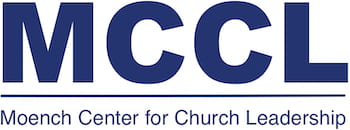I love the church and I have given my life serving within it and developing leaders for it.
I have seen lives changed, relationships renewed, and communities revitalized because of the work and witness of a congregation of believers. As much as I love the church and all she represents, I need to be honest and say the church often lies to itself. It is one of her greatest problems and since believers make up the church, it is one of our biggest problems, too.
I can think of a dozen ways the church is lying to itself, but for the moment let us choose just four lies.
We must defend what we believe.
On the surface this seems true and, practically speaking, it is true. What we believe is important to the church and the loss of orthodoxy can be fatal. Without a definite theological center the church becomes adrift and captive to the latest whims and fancies. The hard work of the church over the ages has been the continued efforts to think through how what we believe, and what the Bible teaches, speaks to the world in which we live.
The lie of it is the way the church does lazy theology. Lazy theology bores people and chases people away. Men and women under the age of thirty are beating a path away from the church as fast as they can and this lie is the one chasing them out the sanctuary door.
Difficult social issues like homosexuality, abortion, and pluralism are not easily settled by appeals to authority and scriptural proof-texting. The church needs to work to define a way of understanding how it will relate to issues like these and it is not enough to say we believe this way because it is important. The Church has survived two millennia because it has found ways to rethink its understanding of the universe and slavery, to name two examples, and if we are going to continue to impact our world we need to think deeply about how we relate to the difficult issues of our world. We may have to change our understanding of how we read the Bible and how God relates to the world.
“What we believe is important” can be the same as saying, “Because we said so.” That will not fly, it will not work, and it is lazy theology. The Church should do better. It has in the past.
We will always be here.
Again, it looks true, but it is a lie told to comfort dying churches and shrinking congregations and denominations. Scattered around outlying neighborhoods of Nashville are dozens of churches that are only shells of their former selves. They told themselves this lie. As people left they found excuses for their leaving and pretended everything would be okay.
In another dozen years, some of these churches will be community centers, or they will be chopped up into condos, or, perhaps, even remade into mosques. The people sitting in the pews need to do the creative and imaginative work of peering into the future and seeing the church that will be and not remembering the church that was. If they fail to look into their future, and believe their lie that they will always be who they are, then their church will die.
One of the hardest things for church members to accept is they eventually will give their church to someone else. Congregations and leaders need to let go of their churches and start looking for ways to give it away for others to carry deeper into the future.
We do not need to change everything.
This may be my favorite lie. It is subtle because it allows churches to lean on all the changes they have made but cling to “what we believe is important” and not change the things they may really, really need to change to connect with their communities.
It is relatively easy to change the times and kinds of services offered. It is harder to cancel Sunday evening services or reimagine Wednesday nights, but it can be done. Changing the music is such a volatile experience it has coined its own term, “Worship Wars”, but it can be done. In the end, though, changing the way we relate to people can be the most devastating and difficult change of all. The way we relate to people different from us in belief and practice changes us. The thing that may most need to change is ourselves and that is the reason we tell this lie.
Everything changes eventually. The church needs to embrace this fact. Everything changes.
We are a loving church.
Okay, THIS is my favorite lie. What this lie really means is we love people like us or we act lovingly to people as we understand we should act lovingly to people. We use lie #1 to keep us from loving people we think have bad theology, we use lie #2 to keep us from loving people who leave us because we say it is always about them. We use lie #3 to keep us from loving people who want to change us in ways we do not believe we should change. We love people on our terms. We believe they should accept that about us.
This is, of course, a lie. The Bible calls the Church to love without condition. A loving church always confronts its need to change, always imagines the future the church will become and does anything to achieve it, and a loving church realizes love overcomes all wrongs and finds a way to accept others. Always.
There are more lies, but that is a start.


Recent Comments